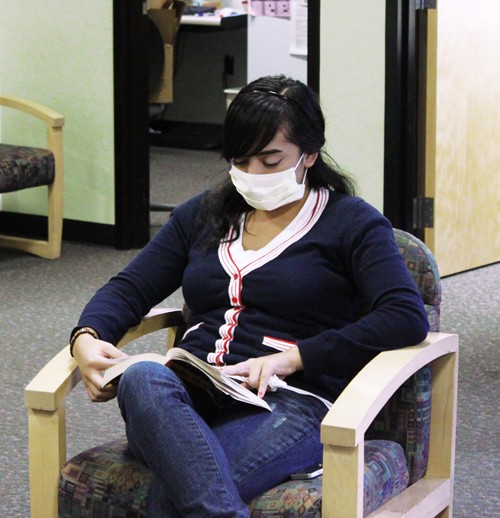If you go
What: “”What is H1N1″” lecture
Who: Jim Collins, UA professor of veterinary science and microbiology
Where: Life Sciences South Room 340
When: 5-6 p.m.
Veterinary science and microbiology professor Jim Collins will give a small, open lecture discussing the H1N1 virus today from 5 to 6 p.m. in the Life Sciences South building, Room 340.
The lecture is meant to educate people on the mechanics of and misconceptions about H1N1, more commonly referred to as swine flu.
The event will be sponsored by the Undergraduate Biology Research Program and hosted by the program’s ambassadors.
Chemistry and biochemistry junior Mounir Koussa is an Undergraduate Biology Research Program ambassador coordinating the event. The lecture will cover swine flu and “”the mechanics of how it works and how it infects, what makes it different from the regular flu and any other virus,”” she said.
H1N1 has become an increasingly popular topic as the public receives alerts on low quantities of available vaccinations, anticipation of increased outbreaks during the approaching flu season and correct steps to take to avoid contracting H1N1.
“”People are very worried about whether or not they’re going to get it and whether or not getting it is really that bad,”” Koussa said.
Constant warnings amplify public concern about becoming ill with the virus, he said.
“”A lot of times what you hear about when things are related to science in the news is very skewed and really odd interpretations,”” Koussa said.
Today’s lecture will aim to give a greater general understanding of the virus to those interested. Collins worked on influenza for his doctoral thesis in the 1970s, with an emphasis on H1N1, and is a virologist, meaning he works with the science of viruses and the diseases caused by them, he said.
“”Flu is very good at changing, and it’s unpredictable,”” Collins said. “”I’m going to try to address some of the confusion about what this virus is and where did it come from.””









